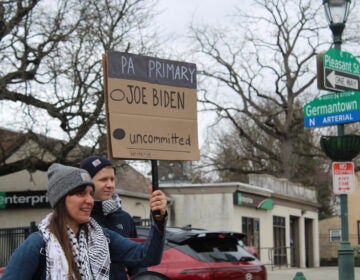Zoning committee looks into stormwater concerns affecting Chestnut Hill
The Chestnut Hill Community Association’s Land Use Planning and Zoning committee (LUPZ) is revisiting areas in the neighborhood previously identified as needing improved stormwater management.
Committee members decided last month to look deeper into past efforts to address stormwater runoff, after hearing from a concerned resident about another site afflicted by the issue, the Water Tower Recreation Center.
LUPZ is now hoping to build upon previous laid groundwork, looking closely at what issues are affecting the neighborhood today and what resources may be available to address them.
In 2009, the CHCA Board of Directors established an ad hoc committee which targeted three sites in Chestnut Hill with stormwater runoff issues (such as frequent flooding and erosion) adversely affecting near-neighbors:
▪ Winston Road, at Germantown Avenue▪ Lincoln Drive, from Springfield Avenue to Cresheim Valley Drive▪ Chestnut Hill Parking Foundation Lot 6, on West Highland Avenue
In a letter to the Philadelphia Water Department (PWD), the CHCA recommended the locations for inclusion in PWD’s “Model Neighborhoods” program, a demonstrative green infrastructure initiative which has evolved into the broader Green City, Clean Waters program. However, nothing more came of that initial correspondence.
“Everything just kind of ground to a halt in 2010,” said committee member, Jean McCoubrey.
A fourth location, West Bells Mill Road was also identified in 2009 as having a broken storm sewer and erosion issues, but was not included in the letter to PWD.
Where to start?
McEwen and fellow committee member, Andrew Moroz suggested that it may make more sense for the LUPZ to focus stormwater reduction efforts on the community’s parking lots, privately owned by the Chestnut Hill Parking Foundation, rather than seek solutions for city-owned property. Doing so may reduce the stormwater burden on city, Moroz said.
Another benefit to first solving the issue on the privately owned lots would be that the CHCA would not have to deal with the city and the Streets Department in order to make progress.
“I’m just thinking of the difference in terms of achieving a real change,” McEwen said.
Parking lots may be the right place to start because PWD has a mandate to work with property owners, noted LUPZ member, John Landis.
PWD charges property owners stormwater management fees which are now being recalculated based on the amount of each parcel’s impermeable surface. The fees can be permanently offset by green infrastructure projects.
Parking Foundation Lot 6 could also serve as a stormwater management prototype for other parking lots across the city, advised committee member, John Haak.
Next Steps
The LUPZ informally decided to work on creating a map, together with updated documentation, identifying all areas in the neighborhood which could benefit from improved stormwater management. Landis and Haak agreed to follow up with PWD and the Streets Department to gain perspective on how best to proceed as the CHCA pursues the February 2014 deadline for funding through the city’s Green Cities, Clean Water initiative.
WHYY is your source for fact-based, in-depth journalism and information. As a nonprofit organization, we rely on financial support from readers like you. Please give today.




